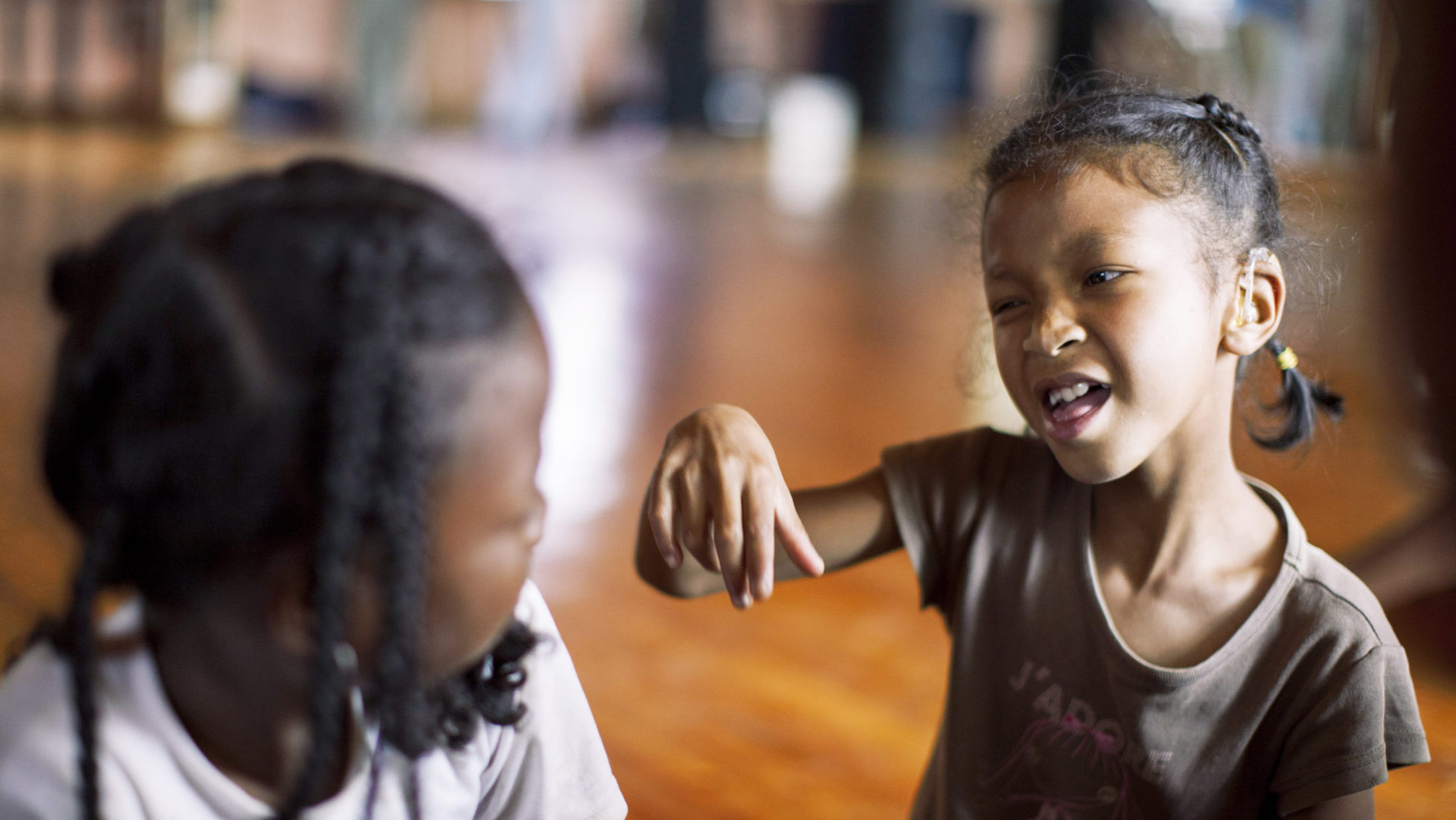
I took my first college class when I was twelve years old.
It was an American Sign Language class, a language I was intrigued and excited by. As the years passed, I grew up, got a job, and eventually moved overseas. I forgot almost all I learned in that class.
My interest in the Deaf community has been revived in recent years as I’ve become friends with some Deaf people and learned about their culture. I recently spent a day with Jared and Nicole Mallet* and Bethany Forrester,* missionaries to the Deaf in Southeast Asia.
I learned a lot of helpful things I hope will override the false assumptions about Deaf culture I built over the years. For one, Deaf people, in general, do not consider themselves to be disabled. Bethany, who is hearing, told me that when I stop thinking of Deaf people as disabled and start thinking of them as abled—able to do anything anyone else can do—I take a significant step toward understanding and appreciating their culture.
Here are more valuable things I learned about interacting with Deaf men and women around me.
Don’t Exclude Deaf People—Instead, Enter into a Conversation.
Sign language deserves the respect of being a distinct language just like French, Spanish, or Russian. For most Deaf men and women, sign language is their heart language. It is the language of their community and education. Deaf people may know their country’s spoken language as a second language, but it does not come easily. For example, Deaf people in America may find reading English or even watching literal English-to-sign translation to be fatiguing and confusing.
“When I stop thinking of Deaf people as disabled and start thinking of them as abled—able to do anything anyone else can do—I take a significant step toward understanding and appreciating their culture.”
Most Deaf people spend their days like anyone else. They go to work or school and spend time with friends and family. However, many work and go to school with few people—or no one else at all—who speak their heart language, and this can be isolating.
If you know Deaf men and women in your church, try entering their world by starting a conversation. This might start with gestures of hello, then evolve into drawings as you build familiarity with each other. Look for opportunities to learn sign from a Deaf teacher just as you would prefer to learn any new language from a native speaker.
Don’t Make Assumptions—Instead, Let Deaf People Make Their Own Decisions.
The Deaf community wants to be supported and encouraged rather than ignored. As a Deaf man, Jared sometimes experiences belittling treatment because of his deafness. But being deaf doesn’t mean anything other than the obvious—he can’t hear. He said Deaf people “can do everything, except hear. That means I can drive. I can ride a bicycle. I can marry. I can raise my own kid.”
It’s important to let Deaf people make decisions for themselves. Don’t assume you know what they want. Unless you’re already fluent in sign language, however, it will take time and effort via writing or gestures to give them all the information they need to be independent. Bethany told me, in her experience, the Deaf community is one of the most patient communities in the world when it comes to communicating cross-culturally, so be patient with them too.
Don’t pity the Deaf—Instead, Empower Them.
Deaf culture, language, and heritage is rich, and they’re proud of it. They don’t need the benevolence or pity of their hearing friends. But the unfortunate fact is that well-meaning ministries sometimes tend toward oppression. A let-me-do-that-for-you attitude unwittingly keeps the hearing person in a position of superiority as the capable one. Meanwhile, their Deaf friend stays in a position of perceived weakness.
“Jared reminded me that in heaven, believers won’t be separated by hearing and Deaf.”
The hearing world often believes that Deaf cannot be leaders. Christians, of all people, should not believe that. Jared emphasized that the Deaf must be empowered to exercise their spiritual giftings. As church leaders equip and encourage Deaf members by giving them leadership and responsibility, Deaf work will grow. Interpreting ministries can be replaced by Deaf church plants where Deaf believers worship together in their own heart language, grow in discipleship, evangelism, and leadership, and multiply on their own.
Jared reminded me that in heaven, believers won’t be separated by hearing and Deaf. Respect among cultures will highlight the gospel, which leaves no room for cultural superiority.
Small Steps toward Change
IMB missionaries to the Deaf community are few in number yet have a big task. They need more teammates—Deaf and hearing,—who will join them in entering this culture, learning language, and sharing the good news of Christ.
But they know it really starts with something small. It starts with a change of mind about how you think about the Deaf person in your church. And really, it starts with the heart. According to Jared, “It’s important to have a big heart and a love for Jesus.”
I shared a meal with Jared, Nicole, and Bethany. Jared prayed, his eyes open and lifted toward heaven. I kept my eyes open, watching Jared’s face and hands as Bethany translated his prayer.
My knowledge of sign language may be sparse, but that day I took a small step forward.
I learned to sign “Amen.”
Madeline Arthington is a writer with the IMB. She lives in Central Asia.

